
Two powerfully intense 1969 free jazz recordings by American ex-patriots, saxophonist Arthur Jones and cornetist Clifford Thornton, recorded days apart in the same studio and released on BYG Records, Jones this reissue's connection with his own trio, and joining Thornton for four uniquely configured sessions that include Archie Shepp, Grachan Moncur III, Dave Burrell, and Sunny Murray.
In Stock
Quantity in Basket: None
Log In to use our Wish List
Shipping Weight: 3.00 units
EU & UK Customers:
Discogs.com can handle your VAT payments
So please order through Discogs
Sample The Album:
Clifford Thornton-cornet, congas
Arthur Jones-alto saxophone
Bernard Guerin-bass
Earl Freeman-congas, gong, percussion, bass
Sunny Murray-drums
Dave Burrell-piano, bells
Archie Shepp-soprano saxophone
Grachan Moncur III-trombone
Claude Delcloo-drums
Click an artist name above to see in-stock items for that artist.
UPC: 752156115427
Label: ezz-thetics by Hat Hut Records Ltd
Catalog ID: ezz-thetics 1154
Squidco Product Code: 33267
Format: CD
Condition: New
Released: 2023
Country: Switzerland
Packaging: Cardboard Gatefold
Recorded in Paris, France, August 18th, 1969, by Claude Jauvert.
Ketchaoua originally released in 1969 as a vinyl LP on the French BYG Records label with catalog code 529.323.
Scorpio originally released in 1971 as a vinyl LP on the French BYG Records label with catalog code 529.350.
"There is never any ending to Paris and the memory of each person who has lived in it differs from that of any other. We always returned to it no matter who we were nor how it was changed nor with what difficulties nor what ease, it could be reached. It was always worth it and we received a return for whatever we brought to it". Now, imagine those sentences with "Paris" replaced by "jazz". It still makes complete sense. The two came together again long after Ernest Hemingway wrote his infamous memoir A Moveable Feast, long even after the Servicemen's Readjustment Act of 1944 (almost universally known as the G.I. Bill started the steady flow of young Americans back across the Atlantic, re-enacting the "international theme" of Henry James where New World energy and confidence met with Old World sophistication and depth of history.
Miles Davis, Dizzy Gillespie and many others had travelled to Europe - Paris, pre-eminently - after the war, attracted by the relative absence of racism, the ability to live cheaply and the wine and the girls. By the end of the 1960s, and the fever dream that the civil rights movement had turned into, Paris again became a refuge. It seemed for a time that the whole American avant-garde - most famously the members of the Art Ensemble of Chicago - had decamped to Europe. Among them was a young man from Cleveland called Arthur Jones, a saxophonist taught at home by his brother Ernest and by Carmen Newsom, who favoured a less molten alto tone that recalled some of the players of the pre-bop era; he had, for instance, more about him of Willie Smith than of Charlie Parker.
Jones travelled to Europe in the summer of 1969. It doesn't help to list all the epochal events of that year, which saw mankind set foot on an extraterrestrial body for the first time while still unable to meet the terrestrial needs of African-Americans and other "minority" groups. Exile seemed preferable to permanent discrimination at home, even if the rhetoric of equality and freedom had become common-place.
Like many of the exiles - long- or short-term - Jones found a sympathetic berth with the BYG-Actuel label which had been founded as a cutting-edge imprint a couple of years earlier by Fernand Bruso, Jean-Luc Young and Jean Georgakarakos (their initials yielded the label name). His solitary album as leader was recorded in August at Studio Saravah with bassist Beb Guérin and drummer Claude Delcloo (with whom he recorded Africanasia, his only other significant session). It was a rhythm section that derived its intense language from the example of Gary Peacock and Sunny Murray on Albert Ayler's Spiritual Unity, recorded a few years earlier. Arthur had been a younger contemporary of Ayler's in Cleveland, but there is no evidence that they knew each other or played together.
The striking thing about Jones's voice, even on the downward-spiralling line of the opening "C.R.M", is how relatively old-fashioned he sounds. This shouldn't be a surprise. Even the seemingly ultra-modernist Anthony Braxton, another Paris sojourner, leant heavily on the saxophonists of the past, but Jones preserved something of the vocal quality of the blues and a warmth that came from the great big band balladeers.
Scorpio and trumpeter Clifford Thornton's Ketchaoua were made at Saravah within days of each other. Thornton's reasons for being in Paris were political as well as artistic. An outspoken commentator on the lot of the creative artist, he had given his voice to the Organization of African Unity's Pan-African Cultural Festival that summer (it wasn't Woodstock, but it may have created even deeper and long-lasting ripples) before moving on to Paris for a hectic bout of recording at BYG. Playing cornet on the Ketchaoua session, and with the same rhythm section as Scorpio (plus Jones, friend and associate Archie Shepp, trombonist Grachan Moncur III, pianist Dave Burrell and drummer Sunny Murray) Thornton also plays in an ancient-to-the-future idiom.
The music on Ketchoua sounds like a meeting; not an even-toned and pragmatic affair, but one at which voices are raised, passionate filibusters attempted, lines of argument forcefully interrupted, but with a single underlying theme, which is the need for solidarity in adversity. The French translation of Hemingway's memoir is Paris est une fête (Paris is a feast or festival; it makes no mention of the church-calendar aspect of "moveable feast"). There is an air of festival to the session, too. Indeed the second track recalls the OAU's Pan-African event in Algiers that had attended with Shepp.
Thornton died in Switzerland in 1989, largely forgotten in his "home" country. Jones died in New York City in 1998, his name almost entirely elided even from histories of the avant-garde. He has remained largely unknown ever since, except to collectors who treasure those early Parisian records and the world they evoke. We know little of what Jones and Thornton did in later years, but if Hemingway was right "If you are lucky enough to live in Paris [read "jazz"] as a young man, then wherever you go for the rest of your life it stays with you"."-Brian Morton, March 2023

The Squid's Ear!
Artist Biographies
• Show Bio for Clifford Thornton "Clifford Edward Thornton III (September 6, 1936 - November 25, 1989) was an American jazz trumpeter, trombonist, political activist, and educator. He played free jazz and avant-garde jazz in the 1960s and '70s. Clifford was born in Philadelphia. The year of his birth has been reported as early as 1934 or as late as 1939. Jazz pianist Jimmy Golden was his uncle, while his cousin, drummer J. C. Moses, had a jazz career that was cut short by failing health. Clifford began piano lessons when he was seven-years-old. He briefly attended Morgan State University and Temple University. Several biographers report that Clifford studied with trumpeter Donald Byrd during 1957, after Byrd had left Art Blakey's Jazz Messengers, and also that he worked with 17-year-old tuba player Ray Draper and Webster Young. Following a late 1950s stint in the U.S. Army bands Thornton moved to New York City. Clifford's political and musical motivations are epitomized by his statement: "For a lot of brothers like myself, we got no choice. What else can we do in this world that's not a slave job? Really, what are our options? We have to be creative musicians if we want to be somebody in this world." In the early 1960s, Clifford lived in the Williamsburg area of Brooklyn in an apartment building with other young musicians, including Rashied Ali, Marion Brown, and Don Cherry. He performed with numerous avant-garde jazz bands, appearing as a sideman on records by notable artists Sun Ra, Archie Shepp, Pharoah Sanders, and Sam Rivers; many of whom were affected by the compositional ideas of Cecil Taylor. In the January 1976 Black World/Negro Digest, Ron Welburne states that during this period Clifford had been active in the Black Arts Movement, associated with Amiri Baraka and Jayne Cortez. This musical and artistic network provided him with a variety of perspectives on ideas such as black self-determination, performance forms, outside playing, and textural rhythm; it also gave him access to performers who would provide the abilities some of his later compositions required. He was included in the dialogue around the developing thought of political artists, including Shepp, Askia M. Touré, and Nathan Hare, as well as the journals Freedomways and Umbra. [...]" ^ Hide Bio for Clifford Thornton • Show Bio for Arthur Jones "Arthur Jones (1940 – 1998) was an American Free Jazz alto saxophonist known for his highly energetic but warm tones. Jones was born in Cleveland, USA, and played for several years in a Rock and Roll band. After discovering music by Ornette Coleman and Eric Dolphy, he started appearing on the New York scene, playing in Frank Wright's group where he took part in the recording of the Your Prayer (1967) album. He then also worked with Jacques Coursil. In 1968 he was a member of Sunny Murray's Acoustical Swing Unit, with which he went to Paris in 1969 and where he recorded two albums of Africanasia as leader with most of the musicians from the Art Ensemble of Chicago. He also made numerous other recordings for BYG Actuel, with Coursil, Archie Shepp, Sunny Murray or Burton Greene. He died in New York City, USA." ^ Hide Bio for Arthur Jones • Show Bio for Bernard Guerin "Bernard "Beb" Guérin (December 22, 1"941 in La Rochelle - November 14, 1980 in Paris) was a French jazz double-bassist. Beb Guérin first began playing bass at age 23, working in the 1960s with Sonny Criss, Jacques Coursil, François Tusques, Alan Silva, and Claude Delcloo later in the decade, as well as with free jazz groups in Paris clubs. In the early 1970s he worked with Ambrose Jackson, Steve Lacy, Sunny Murray, Sonny Sharrock, Archie Shepp, Alan Shorter, and Clifford Thornton, and worked frequently with Michel Portal for most of the 1970s." ^ Hide Bio for Bernard Guerin • Show Bio for Earl Freeman Earl Freeman, born in Oakland, California on March 11, 1931; died July 25, 1994, was a bassist, multi-instrumentalist, poet, and artist. He is known for the groups Bill Summers & Summers Heat, Friendship Next Of Kin, The Freestyle Band. ^ Hide Bio for Earl Freeman • Show Bio for Sunny Murray "James Marcellus Arthur "Sunny" Murray (born September 21, 1936 in Idabel, Oklahoma) is one of the pioneers of the free jazz style of drumming. Murray spent his youth in Philadelphia before moving to New York City where he began playing with Cecil Taylor: "We played for about a year, just practicing, studying - we went to workshops with Varèse, did a lot of creative things, just experimenting, without a job" He was featured on the influential 1962 concerts in Denmark released as Nefertiti the Beautiful One Has Come. Murray was among the first to forgo the drummer's traditional role as timekeeper in favor of purely textural playing. "Murray's aim was to free the soloist completely from the restrictions of time, and to do this he set up a continual hailstorm of percussion ... continuous ringing stickwork on the edge of the cymbals, an irregular staccato barrage on the snare, spasmodic bass drum punctuation and constant, but not metronomic, use of the sock-cymbal" After his period with Taylor's group, Murray's influence continued as a core part of Albert Ayler's trio who recorded Spiritual Unity: "Sunny Murray and Albert Ayler did not merely break through bar lines, they abolished them altogether." He later recorded under his own name for ESP-Disk and then when he moved to Europe for BYG Actuel." ^ Hide Bio for Sunny Murray • Show Bio for Dave Burrell "Distinguished composer-pianist Dave Burrell is an African-American performing artist of singular stature on the international contemporary music scene. His dynamic compositions with blues and gospel roots recall the tradition of Jelly Roll Morton, James P. Johnson and Duke Ellington, as well avant garde composers Thelonious Monk and John Coltrane. Dave and his parents moved from New York to Hawaii in 1946. After majoring in music at the University of Hawaii, he enrolled at Berklee College of Music in Boston, Massachusetts graduating with degrees in composition/arranging and performance in 1965. He moved to New York City, where he quickly established himself as one of the most innovative and original pianists, collaborating with the emerging leaders in contemporary jazz, joining the groups of saxophonists Marion Brown, Pharoah Sanders and Archie Shepp. [...] Dave Burrell has 40 recordings under his own name, among them High, High Two, Echo, La Vie de Boheme, After Love, In-Sanity, Only Me, Dreams, Black Spring, Lush Life, 'Round Midnight, Teardrops for Jimmy, Windward Passages, Daybreak, Brother to Brother, In Concert, Jelly Roll Joys, Esquisses for a Walk, Live at Caramoor, Changes and Chances, Recital, Expansion, Margy Pargy, Momentum, Dave Burrell Plays His Songs, No Fools No Fun, Dave Burrell Conception. Dave Burrell appears on 130 recordings, among them his pivotal recordings with tenor saxophonists Archie Shepp: Live from Pan-African Festival, There is a Trumpet in MySoul, Blasé, Kwanza, Attica Blues, Cry of My People, Montreaux One, Montreaux Two, Lover Man, Pharoah Sanders: Tauhid, Marion Brown: Jubalee, Three For Shepp, Live in Japan, David Murray: Hope Scope, Lovers, Deep River, Ballads, Spirituals, Remembrances, Lucky Four, Picasso, Windward Passages. Other important recordings are 360 Degree Music Experience: From Ragtime to No Time, In:sanity, Grachan Moncur: New Africa, Sunny Murray: Homage to Africa, Bob Stewart: Here and Now, and Consequences with drummer Billy Martin. The Inside Songs of Curtis Mayfield and Essence of Ellington with William Parker's Ensembles. Horo Records in Italy recently released a live duo recording, No Fools No Fun with Ellington-drummer Sam Woodyard from a 2 months long engagement in Paris (1979). Dave Burrell appears on the Argentine saxophonist Roberto Pettinato's Sony/Columbia Argentina Records releases Purity and Same Egg. A live duo recording with guitarist Garrison Fewell, New Earth to be released in 2015. A frequent lecturer, Burrell's Master Classes include Strasbourg Conservatory, Tremblay Conservatory (Paris), Conservatoire Municipal (Paris), Guildhall School of Music and Dance (London), Columbia University, New York University, Queens College, Bard College, New York. University of Pennsylvania, Swarthmore College, Bryn Mawr College, Duquesne University, School of Music, Pennsylvania. Brandeis University, Massachusetts. Rice University, Houston, Texas. DePauw University, Indiana. Library of Congress and Kennedy Center, Washington, D.C. Burrell's most recent commissions include Rosenbach Museum and Library, Philadelphia, and Whitney Museum, New York City. Dave Burrell is the recipient of numerous grants and awards including National Endowment for the Arts, Philadelphia Music Foundation, William J. Cooper Foundation, New York State Council on the Arts, Pennsylvania State Council on The Arts, MidAtlantic Foundation, John Garcia Gensel Award, and the Pew Fellowship in Jazz Composition. Dave Burrell joined the Steinway Artist Roster (www.Steinway.com) in 2007." ^ Hide Bio for Dave Burrell • Show Bio for Archie Shepp "Archie Shepp (born May 24, 1937) is an American jazz saxophonist. Shepp was born in Fort Lauderdale, Florida, but raised in Philadelphia, Pennsylvania. He studied piano, clarinet, and alto saxophone before focusing on tenor saxophone. He occasionally plays soprano saxophone and piano. He studied drama at Goddard College from 1955 to 1959. He played in a Latin jazz band for a short time before joining the band of avant-garde pianist Cecil Taylor. Shepp's first recording under his own name, Archie Shepp - Bill Dixon Quartet, was released on Savoy Records in 1962 and featured a composition by Ornette Coleman. Along with John Tchicai and Don Cherry, he was a member of the New York Contemporary Five. John Coltrane's admiration led to recordings for Impulse! Records, the first of which was Four for Trane in 1964, an album of mainly Coltrane compositions on which he was joined by trombonist Roswell Rudd, bassist Reggie Workman and alto player John Tchicai. Shepp participated in the sessions for Coltrane's A Love Supreme in late 1964, but none of the takes he participated in was included on the final LP release (they were made available for the first time on a 2002 reissue). However, Shepp, along with Tchicai and others from the Four for Trane sessions, then recorded Ascension with Coltrane in 1965, and his place alongside Coltrane at the forefront of the avant-garde jazz scene was epitomized when the pair split a record (the first side a Coltrane set, the second a Shepp set) entitled New Thing at Newport released in late 1965.File:Archie Shepp interview 1978.webmPlay media(video) Interview from 1978, Archie Shepp discusses jazz trends, poverty, politics, civil rights, culture and society. In 1965, Shepp released Fire Music, which included the first signs of his developing political consciousness and his increasingly Afrocentric orientation. The album took its title from a ceremonial African music tradition and included a reading of an elegy for Malcolm X. Shepp's 1967 The Magic of Ju-Ju also took its name from African musical traditions, and the music was strongly rooted in African music, featuring an African percussion ensemble. At this time, many African-American jazzmen were increasingly influenced by various continental African cultural and musical traditions; along with Pharoah Sanders, Shepp was at the forefront of this movement. The Magic of Ju-Ju defined Shepp's sound for the next few years: freeform avant-garde saxophone lines coupled with rhythms and cultural concepts from Africa. Shepp was invited to perform in Algiers for the 1969 Pan-African Cultural Festival of the Organization for African Unity, along with Dave Burrell, Sunny Murray, and Clifford Thornton. This ensemble then recorded several sessions in Paris at the BYG Actuel studios. Shepp continued to experiment into the new decade, at various times including harmonica players and spoken word poets in his ensembles. With 1972's Attica Blues and The Cry of My People, he spoke out for civil rights; the former album was a response to the Attica Prison riots. Shepp also writes for theater; his works include The Communist (1965) and Lady Day: A Musical Tragedy (1972). Both were produced by Robert Kalfin at the Chelsea Theater Center. In 1971, Shepp was recruited to the University of Massachusetts Amherst by Randolph Bromery, beginning a 30-year career as a professor of music. Shepp's first two courses were entitled "Revolutionary Concepts in African-American Music" and "Black Musician in the Theater". Shepp was also a professor of African-American Studies at SUNY in Buffalo, New York. In the late 1970s and beyond, Shepp's career went between various old territories and various new ones. He continued to explore African music, while also recording blues, ballads, spirituals (on the 1977 album Goin' Home with Horace Parlan) and tributes to more traditional jazz figures such as Charlie Parker and Sidney Bechet, while at other times dabbling in R&B, and recording with various European artists including Jasper van't Hof, Tchangodei and Dresch Mihály. Shepp is featured in the 1981 documentary film Imagine the Sound, in which he discusses and performs his music and poetry. Shepp also appears in Mystery, Mr. Ra, a 1984 French documentary about Sun Ra. The film also includes footage of Shepp playing with Sun Ra's Arkestra. Since the early 1990s, he has often played with the French trumpeter Eric Le Lann. In 1993, he worked with Michel Herr to create the original score for the film Just Friends. In 2002, Shepp appeared on the Red Hot Organization's tribute album to Fela Kuti, Red Hot and Riot. Shepp appeared on a track entitled "No Agreement" alongside Res, Tony Allen, Ray Lema, Baaba Maal, and Positive Black Soul. In 2004 Archie Shepp founded his own record label, Archieball, together with Monette Berthomier. The label is located in Paris, France, and includes collaborations with Jacques Coursil, Monica Passos, Bernard Lubat, and Frank Cassenti." ^ Hide Bio for Archie Shepp • Show Bio for Grachan Moncur III "Grachan Moncur III (born June 3, 1937) is an American jazz trombonist. He is the son of jazz bassist Grachan Moncur II and the nephew of jazz saxophonist Al Cooper. Born in New York City (his father's father was from the Bahamas) and raised in Newark, New Jersey, Grachan Moncur III began playing the cello at the age of nine, and switched to the trombone when he was 11. In high school he attended the Laurinburg Institute in North Carolina, the private school where Dizzy Gillespie had studied. While still at school he began sitting in with touring jazz musicians on their way through town, including Art Blakey and Jackie McLean, with whom he formed a lasting friendship. After high school Moncur toured with Ray Charles (1959–62), Art Farmer and Benny Golson's Jazztet (1962), and Sonny Rollins. He took part in two classic Jackie McLean albums in the early 1960s, One Step Beyond and Destination... Out!, to which he also contributed the bulk of compositions and which led to two influential albums of his own for Blue Note Records, Evolution (1963) with Jackie McLean and Lee Morgan, and Some Other Stuff (1964) with Herbie Hancock and Wayne Shorter. Moncur joined Archie Shepp's ensemble and recorded with other avant-garde players such as Marion Brown, Beaver Harris and Roswell Rudd (the other big name in American free jazz trombone). During a stay in Paris in the summer of 1969, he recorded two albums as a leader for the famous BYG Actuel label, New Africa and Aco Dei de Madrugada, as well as appearing as a sideman on numerous other releases of the label. In 1974, the Jazz Composer's Orchestra commissioned him to write Echoes of Prayer (1974), a jazz symphony featuring a full orchestra plus vocalists and jazz soloists. His sixth album as a leader, Shadows (1977) was released only in Japan. Unfortunately, he was subsequently plagued by health problems and copyright disputes and recorded only rarely. Through the 1980s he recorded with Cassandra Wilson (1985), played occasionally with the Paris Reunion Band and Frank Lowe, appeared on John Patton's Soul Connection (1983), but mostly concentrated on teaching. In 2004 he re-emerged with a new album (Exploration) on Capri Records featuring Grachan's compositions arranged by Mark Masters for an octet including Tim Hagans and Gary Bartz." ^ Hide Bio for Grachan Moncur III • Show Bio for Claude Delcloo Claude Delcloo: French drummer and composer (Full Moon Ensemble) active in the 1970s that was involved in virtually every BYG Actuel date. Claude Delcloo was so much a ubiquitous presence throughout the BYG Actuel catalogue that it'd be easy to assume they had trouble keeping him off drumming on the Sunny Murray albums or Andrew Cyrille's solo percussion record. He went on to produce French pop, soul, jazz (etc) until at least the late 70's. He is known for the groups Burton Greene Ensemble, Jacques Coursil Unit, The Baden-Baden Free Jazz Orchestra, The Full Moon Ensemble, The Terje Rypdal Group,. ^ Hide Bio for Claude Delcloo
7/1/2025
Have a better biography or biography source? Please Contact Us so that we can update this biography.
7/1/2025
Have a better biography or biography source? Please Contact Us so that we can update this biography.
7/1/2025
Have a better biography or biography source? Please Contact Us so that we can update this biography.
7/1/2025
Have a better biography or biography source? Please Contact Us so that we can update this biography.
7/1/2025
Have a better biography or biography source? Please Contact Us so that we can update this biography.
7/1/2025
Have a better biography or biography source? Please Contact Us so that we can update this biography.
7/1/2025
Have a better biography or biography source? Please Contact Us so that we can update this biography.
7/1/2025
Have a better biography or biography source? Please Contact Us so that we can update this biography.
7/1/2025
Have a better biography or biography source? Please Contact Us so that we can update this biography.
Track Listing:
1. Ketchaoua 12:31
2. Pan African Festival 7:50
3. Brotherhood 10:49
4. Speak With Your Echo (And Call This Dialogue) 9:12
5. C.R.M. 10:16
6. B.T. 8:06
7. Sad Eyes 13:13
8. Brother B. 7:32
Hat Art
Improvised Music
Jazz
Free Improvisation
Jazz Reissues
Octet Recordings
Septet recordings
Quartet Recordings
Duo Recordings
Trio Recordings
Staff Picks & Recommended Items
Top Sellers for 2023 by Customer Sales
Search for other titles on the label:
ezz-thetics by Hat Hut Records Ltd.

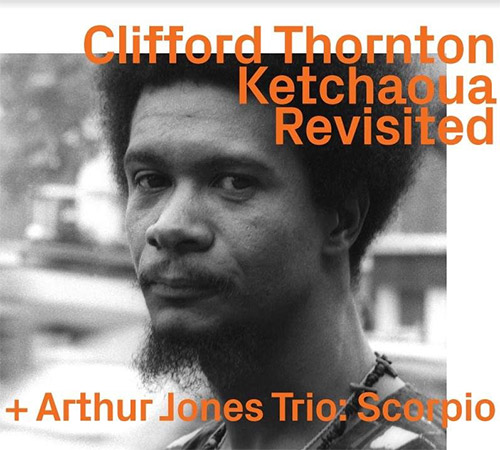

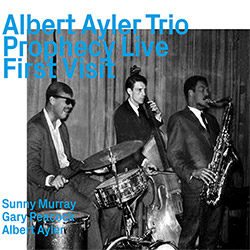





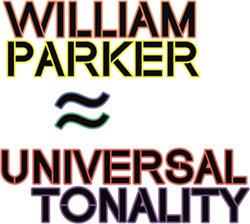

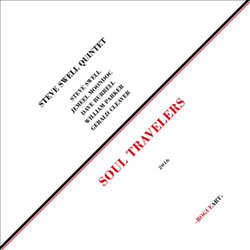

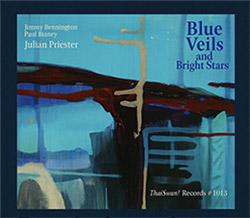

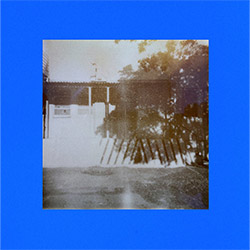
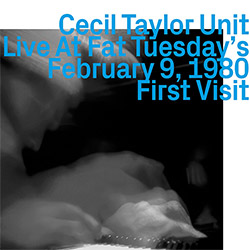
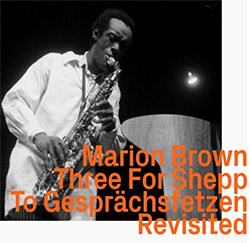
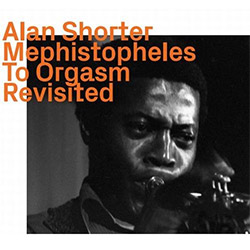


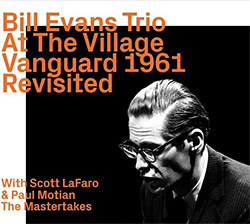
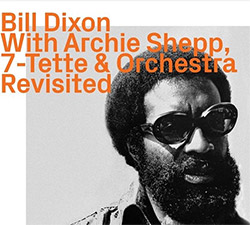

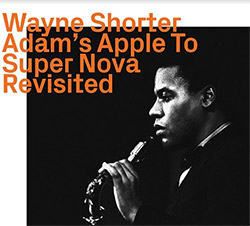
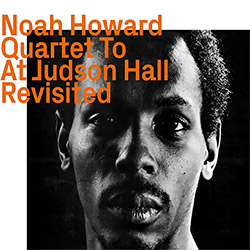
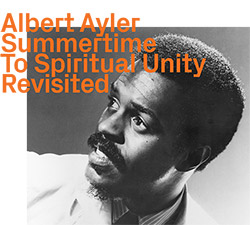
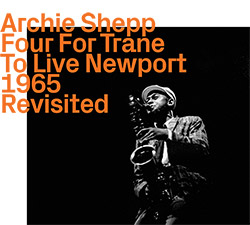










![Deupree, Jerome / Sylvie Courvoisier / Lester St. Louis / Joe Morris: Canyon [2 CDs]](https://www.teuthida.com/productImages/misc4/36404.jpg)


![Eternities: Rides Again [CASSETTE]](https://www.teuthida.com/productImages/misc4/36247.jpg)

![Lopez, Francisco: Untitled (2021-2022) [2 CDs]](https://www.teuthida.com/productImages/misc4/36438.jpg)




![Eventless Plot | Haarvol: The Subliminal Paths [CASSETTE + DOWNLOAD]](https://www.teuthida.com/productImages/misc4/36232.jpg)











![Eventless Plot | Francesco Covarino: Methexis [CASSETTE + DOWNLOAD]](https://www.teuthida.com/productImages/misc4/36231.jpg)



![Das B (Mazen Kerbaj / Mike Majkowski / Magda Mayas / Tony Buck): Love [VINYL]](https://www.teuthida.com/productImages/misc4/36329.jpg)



![Hemphill Stringtet, The: Plays the Music of Julius Hemphill [VINYL]](https://www.teuthida.com/productImages/misc4/36409.jpg)



![Halvorson, Mary Septet: Illusionary Sea [2 LPS]](https://www.teuthida.com/productImages/misc4/17952.jpg)






![Money : Money 2 [2 CDs]](https://www.teuthida.com/productImages/misc4/35894.jpg)




![Klinga, Erik: Elusive Shimmer [VINYL]](https://www.teuthida.com/productImages/misc4/36258.jpg)
![CHANGES TO blind (Phil Zampino): Volume 9 - I Wave on a Fine Vile Mist [CD + DOWNLOAD]](https://www.teuthida.com/productImages/misc4/36061.jpg)

![Wallmart / Rubbish: Asset Protection [split CD]](https://www.teuthida.com/productImages/misc4/35900.jpg)


![+Dog+: The Family Music Book Vol. 5 [2 CDs]](https://www.teuthida.com/productImages/misc4/35897.jpg)
![Kuvveti, Deli : Kuslar Soyledi [CASSETTE w/ DOWNLOAD]](https://www.teuthida.com/productImages/misc4/36107.jpg)

![Nakayama, Tetsuya: Edo Wan [CASSETTE w/ DOWNLOAD]](https://www.teuthida.com/productImages/misc4/36105.jpg)




![Yiyuan, Liang / Li Daiguo: Sonic Talismans [VINYL]](https://www.teuthida.com/productImages/misc4/35957.jpg)
![Brown, Dan / Dan Reynolds: Live At The Grange Hall [unauthorized][CASSETTE]](https://www.teuthida.com/productImages/misc4/36245.jpg)








![Palestine, Charlemagne / Seppe Gebruers: Beyondddddd The Notessssss [VINYL]](https://www.teuthida.com/productImages/misc4/36206.jpg)
![Palestine, Charlemagne / Seppe Gebruers: Beyondddddd The Notessssss [NEON GREEN VINYL]](https://www.teuthida.com/productImages/misc4/36207.jpg)

![Laubrock, Ingrid: Purposing The Air [2 CDs]](https://www.teuthida.com/productImages/misc4/35639.jpg)

![Yoko, Ono / The Great Learning Orchestra: Selected Recordings From Grapefruit [2 CDs]](https://www.teuthida.com/productImages/misc4/35841.jpg)









![Zorn, John / JACK Quartet: The Complete String Quartets [2 CDs]](https://www.teuthida.com/productImages/misc4/35609.jpg)

![Lonsdale, Eden: Dawnings [2 CDs]](https://www.teuthida.com/productImages/misc4/35480.jpg)



![Sorry For Laughing (G. Whitlow / M. Bates / Dave-Id / E. Ka-Spel): Rain Flowers [2 CDS]](https://www.teuthida.com/productImages/misc4/35985.jpg)

![Rolando, Tommaso / Andy Moor : Biscotti [CASSETTE w/ DOWNLOADS]](https://www.teuthida.com/productImages/misc4/36106.jpg)


![Electric Bird Noise / Derek Roddy: 8-10-22 [CD EP]](https://www.teuthida.com/productImages/misc4/35970.jpg)








![Elephant9 : Mythical River [VINYL]](https://www.teuthida.com/productImages/misc4/34624.jpg)



![Elephant9 with Terje Rypdal: Catching Fire [VINYL 2 LPs]](https://www.teuthida.com/productImages/misc4/35355.jpg)
![Deerlady (Obomsawin, Mali / Magdalena Abrego): Greatest Hits [VINYL]](https://www.teuthida.com/productImages/misc4/34876.jpg)







![Surplus 1980: Illusion of Consistency [CD]](https://www.teuthida.com/productImages/misc4/35069.jpg)
![Staiano, Moe: Away Towards the Light [VINYL + DOWNLOAD]](https://www.teuthida.com/productImages/misc4/35037.jpg)
![Coley, Byron: Dating Tips for Touring Bands [VINYL]](https://www.teuthida.com/productImages/misc4/17906.jpg)

![Lost Kisses: My Life is Sad & Funny [DVD]](https://www.teuthida.com/productImages/misc4/lostKissesDVD.jpg)